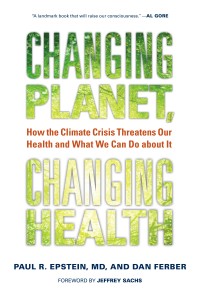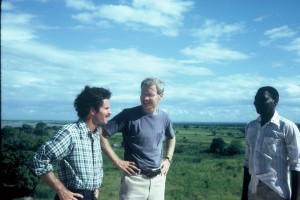A group of colleagues have succeeded in producing the first continuous proxy record of sea level for the past 2000 years. According to this reconstruction, 20th-Century sea-level rise on the U.S. Atlantic coast is faster than at any time in the past two millennia.
Good data on past sea levels is hard to come by. Reconstructing the huge rise at the end of the last glacial (120 meters) is not too bad, because a few meters uncertainty in sea level or a few centuries in dating don’t matter all that much. But to trace the subtle variations of the last millennia requires more precise methods.






 It would not surprise me if the denialists would deny the existence of the new book by Haydn Washington and John Cook (
It would not surprise me if the denialists would deny the existence of the new book by Haydn Washington and John Cook (